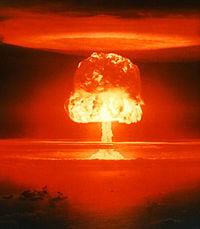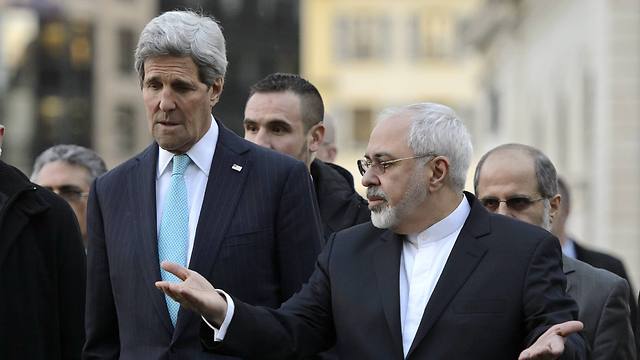With only two weeks to go to the deadline, Iran and the P5+1 still have not agreed on many crucial issues and the deal draft is full of gaps, deepening Israel’s fear that the US and other world powers involved in the negotiations will sign a bad deal.
The latest reports coming out of the Vienna talks between the P5+1 Powers and the Islamic Republic on its nuclear aspirations indicate that they have arrived at an impasse, with all key elements in disagreement.
Both sides still disagree on all main elements of a nuclear deal with less than two weeks to go to their June 30th target date, and they will likely have to extend their negotiations, two diplomats told The Associated Press.
If the talks are extended, it will run counter to US statements that it would not agree to such a move. “We’re not contemplating an extension beyond June 30th. Again, we’re united among the P5+1 that our efforts are to reach a final deal by the end of June,” State Department spokesman Jeff Rathke said at the end of May.
The diplomats’ comments enforce concerns that obstacles to a pact remain remain concerning how far Iran must open its nuclear program to international inspection under any deal.
Iran’s supreme leader, Ayatollah Ali Khamenei, and other Iranian leaders have for weeks rebuffed US demands that UN nuclear monitors have access to military sites and nuclear scientists. International Atomic Energy Agency (IAEA) monitors are attempting to monitor and probe Iran’s past work on atomic arms, but their efforts have so far been foiled by Iran.
Negotiators are concerned about a lack of headway on all issues. Russian chief delegate Sergey Ryabkov said Friday the “the rate of progress … is progressively slowing down.”
Negotiators have been meeting five days a week in Vienna over the past few weeks. The two diplomats that spoke to AP are familiar with the progress of the talks and spoke shortly before a planned five-day round that reconvened on Wednesday. They demanded anonymity because they are not authorized to discuss the confidential negotiations.
A Patchwork Agreement
The diplomats described the draft of a main document as a patchwork of text and dozens of blank spaces because of stubborn disagreement on up to 10 elements crucial to any deal. Those details are to be included in four or five annexes, which remain incomplete.

Minister Yuval Steinitz. (Miriam Alster/Flash90)
Both sides remain publicly committed to the June 30 deadline. Still, the diplomats said all nations at the table recognize that a delay up to July 9 is not a deal-breaker.
If US Congress receives a deal by July 9, it has 30 days to review it before President Barack Obama could suspend congressional sanctions. Postponement of a signing of a deal beyond that date would double the congressional review period to 60 days, giving both Iranian and US opponents more time to work on undermining an agreement.
A final nuclear deal would cap nearly a decade of international efforts to restrict Iranian nuclear programs that could be turned toward developing weapons.
Israel has warned that the proposed deal has “too many loopholes.” Israeli Minister of National Infrastructure, Energy and Water Resources Yuval Steinitz warned earlier this month that “we see the emerging agreement as bad for Israel and dangerous for the world.”
By: AP and United with Israel Staff

Sign the Petition to Stop a Nuclear Iran
The US Congress must ensure that sanctions against Iran remain in force until the nuclear threat is completely eliminated.
I strongly oppose easing sanctions before the nuclear threat from Iran has been eliminated. Allowing Iran to enrich uranium without being subject to 'anytime, anywhere' inspections is extremely dangerous and unacceptable. Iran's nuclear program must be stopped.
See our Privacy Policy